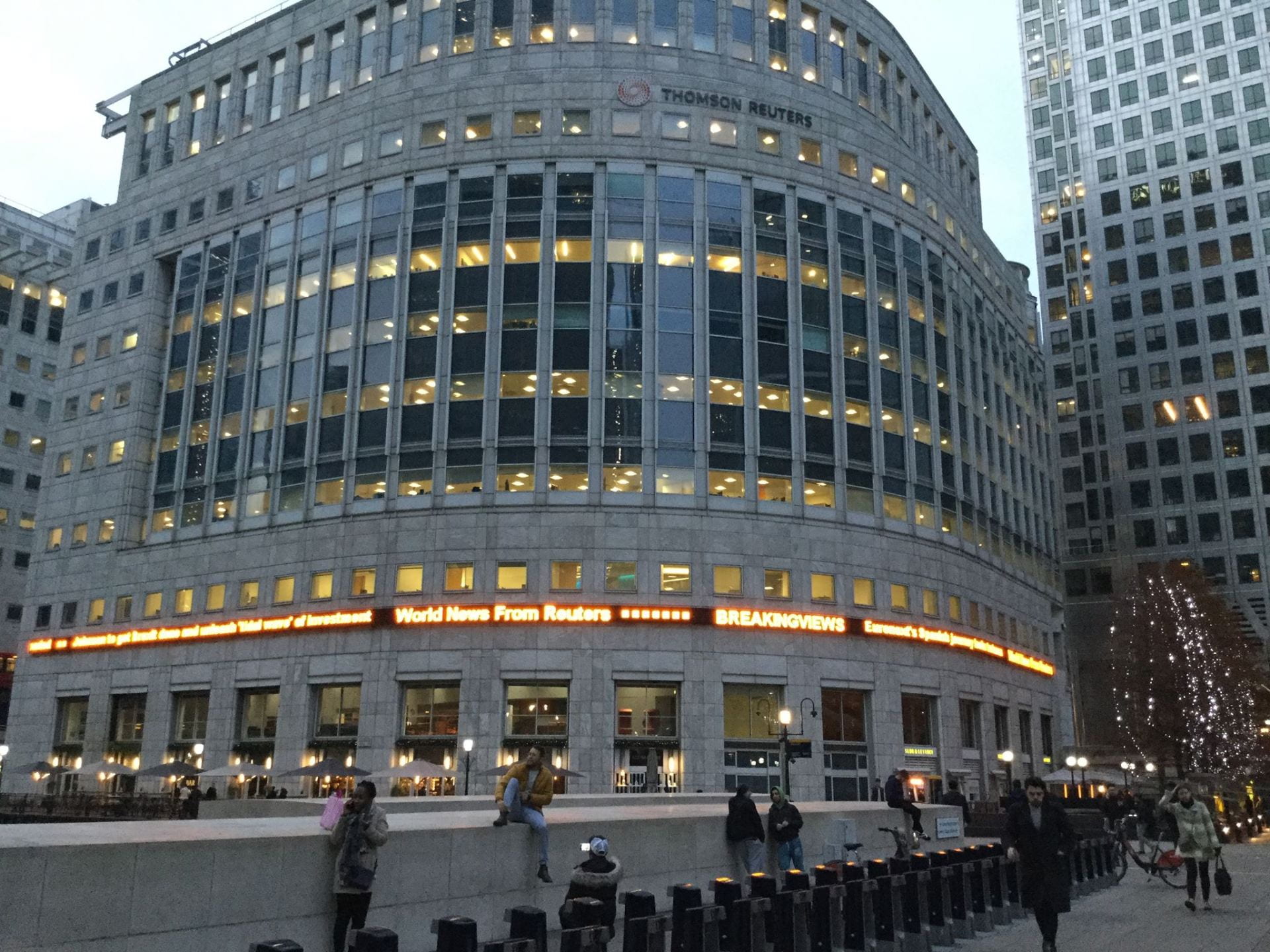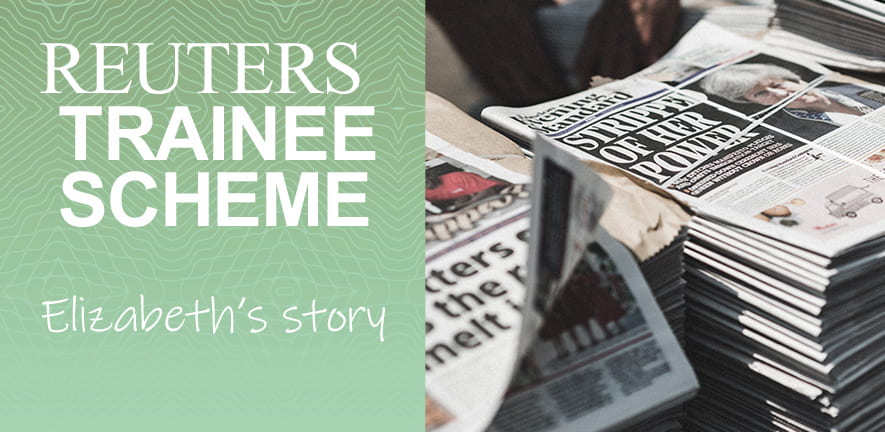Elizabeth Howcroft studied English at Magdalene and graduated in 2018. After that, she completed an internship at Bloomberg News, then worked as a researcher at the BBC, before starting the Reuters journalism trainee scheme this September. Here, Elizabeth answers some key questions about the scheme and getting into journalism more broadly
What do you do on a trainee scheme?
The Reuters scheme is nine months long. We started off with five weeks of classroom teaching, which included things like fictional news simulation exercises, photo skills, media law and ethics, speed training and learning how to do financial and business reporting. After that, we all went to our placement bureau (I stayed in London – the other four trainees are in Lisbon, Madrid, Stockholm and Moscow) and started work as reporters. My first rotation is on the markets desk, so I cover things like currencies and central banks, and after Christmas I’ll move on to the ‘UK bureau’ part of the office, i.e. UK news.
How does a news agency differ from a newspaper?
News agencies, or news wires, are places like Reuters, Associated Press, Agence France-Presse and Bloomberg. They gather news and send it directly to businesses, governments and consumer-facing news organisations. Work experience at a newspaper will often involve ‘watching the wire’, which means keeping an eye on the stories that arrive from Reuters and deciding whether or not to write them up.
In practice, the main difference is that news agencies prioritise accuracy and speed above all else. There’s no incentive to be partisan or sensationalist – you just report what’s happening in plain English and update your articles as the situation develops. It also means we do something called ‘snapping’ – this is when you send rapid one-line headlines out to the wire while a news event is happening. Clients trade on the information, so you’re often aiming to beat your competitors by a matter of seconds.
Don’t forget the obvious: if you’re applying to a news-gathering organisation you need to explicitly state what would make you good at finding news
What skills do you need?
There’s obviously no short answer to this, but, for me, it seems like the main skills I use on a daily basis are the ability to organise facts in a logical order, translate opaque jargon into more clear language, and find genuinely new information amid all the PR and non-news in the world. You’ve also got to be persistent and confident, e.g. on the phone, but that’s probably true of most jobs.
What should you put in your cover letter?
Try not to overthink it. My strategy was to treat it as a join-the-dots exercise: your CV says what your strengths are, your cover letter can then link those strengths to what the job involves. Don’t forget the obvious: if you’re applying to a news-gathering organisation you need to explicitly state what would make you good at finding news.

How do you get journalism experience as a student?
I got involved with Varsity, but this is by no means the only option. Any student journalism society that allows you to write news, interview people or learn some technical skills is worthwhile. Although features and opinion pieces tend to dominate student publications, most trainee schemes will be looking for news reporters, so make sure you get some news experience.
Do you have to do unpaid work experience?
Not necessarily. The fun thing about journalism is that it’s so varied pretty much any experience that taught you something about how the world works is relevant. Journalism work experience is unlikely to be a requirement for trainee schemes, but it can be a good way to show your enthusiasm. If you do decide to do some, definitely apply for the Careers Service’s bursary for unpaid internships to cover your costs. While you might want some big names on your CV, you’re more likely to get real reporting experience that you can talk about in interviews by applying to a local paper or smaller publication, where you’ll be able to pitch your own ideas.
Learning through reading around and talking to people aren’t seen as inferior to academic qualifications
Do you need a journalism Master’s?
I didn’t do one and I’ve never seen a job that lists a journalism MA as a requirement. I gather they can be good at helping you find work experience though. Another option is to do an NCTJ course; they tend to be cheaper and less time-consuming. I’d recommend going to a free taster workshop run by News Associates if you want to see what an NCTJ would be like. Personally, the taster lesson put me off. If you’re considering doing a master’s or training course it’s essential to speak to people who’ve already done it to get a sense of what you’ll actually learn.
It took me a while to realise that you don’t need a formal qualification in something to be able to report on it. When I was a student I thought political reporters needed politics degrees, business reporters needed economics degrees, to be a visual reporter you need to have taken photography lessons etc. But actually there are so many different ways you can learn about an area and once you have enough basic knowledge to start reporting, you’ll learn everything else on the job. Learning through reading around and talking to people aren’t seen as inferior to academic qualifications.
Resources – not a complete list – just some things I used!
Funding:
• Cambridge Careers Service Bursary
• Varsity Trust Bursary
• Orwell Society Bursary
Ways to learn skills:
• BBC Academy
• Google News Initiative
• News Associates free workshops
Ways to learn about the industry:
• Columbia Journalism Review
• Reuters Institute for the Study of Journalism

